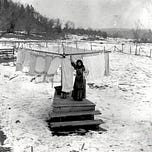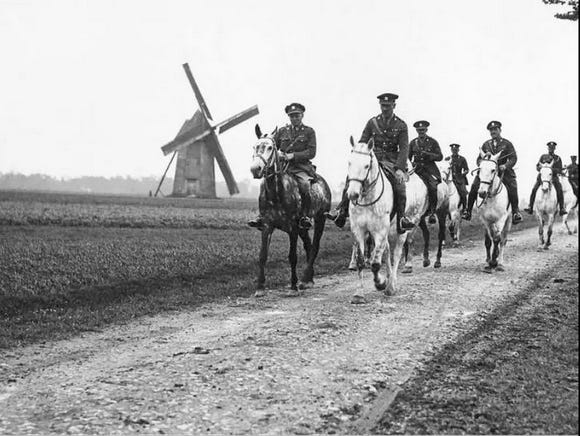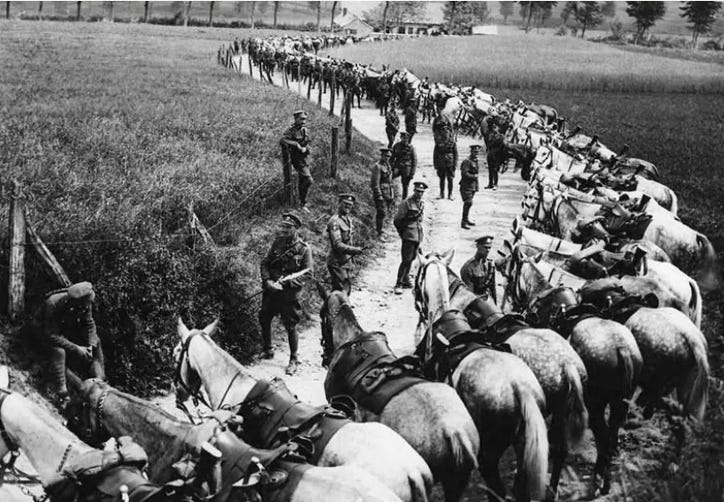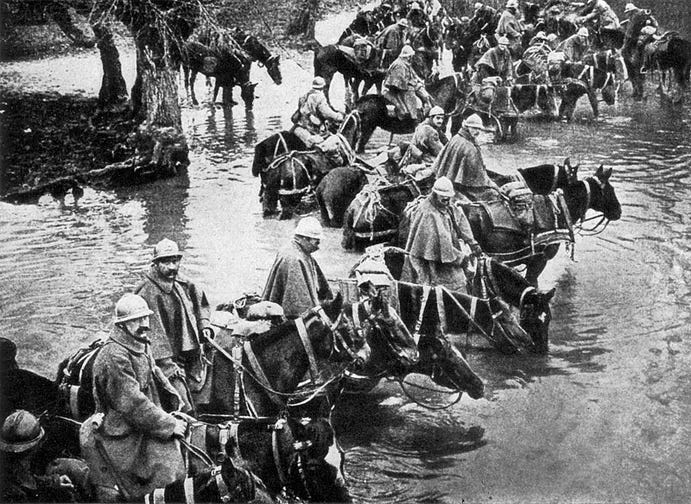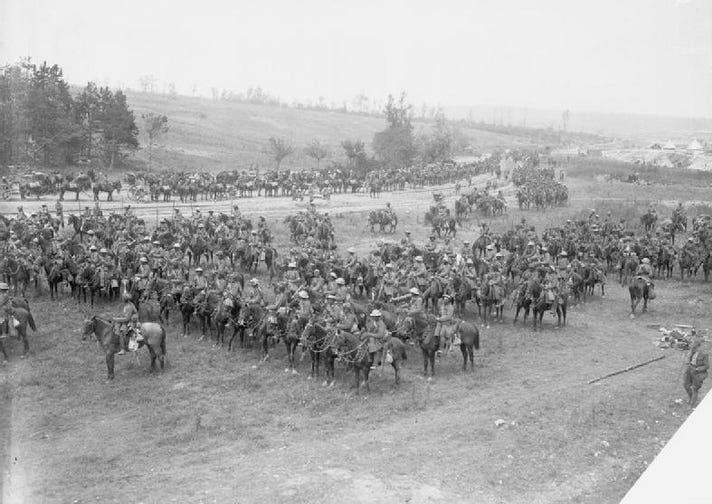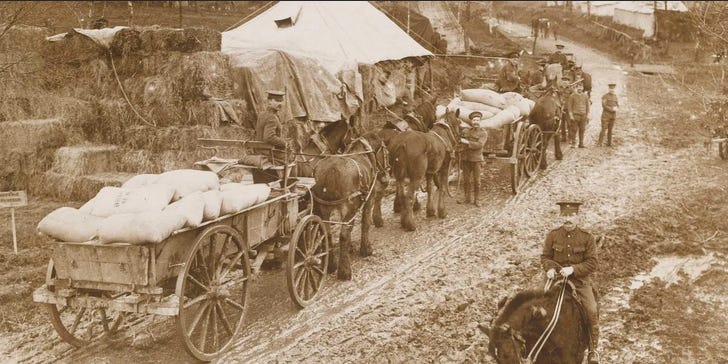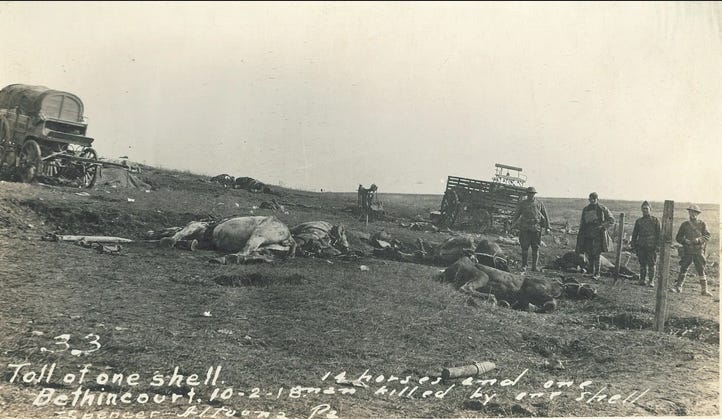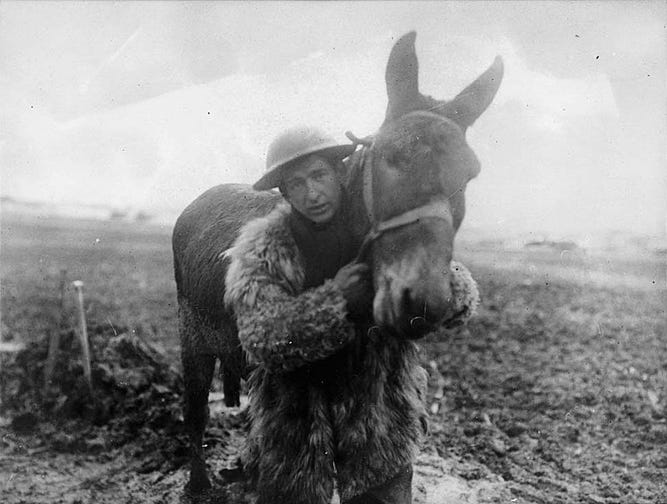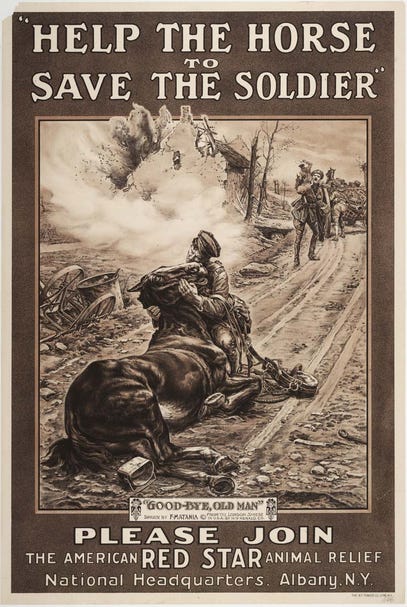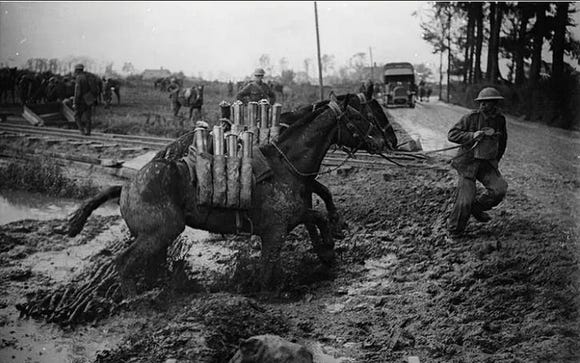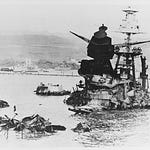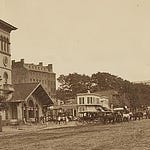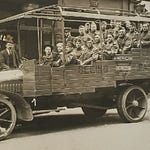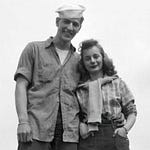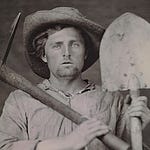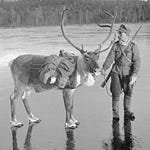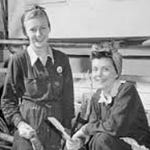The war horse.
Eight million horses, donkeys and mules were killed in World War I.
They fell victim to machine gun fire, artillery and poison gas, became injured in barbed wire entanglements, suffered high rates of disease, and, in the case of German horses, suffered malnutrition and starvation.
The nations’ cavalry commanders initially failed to appreciate the potential impact of new war-fighting technology on their horse stocks.
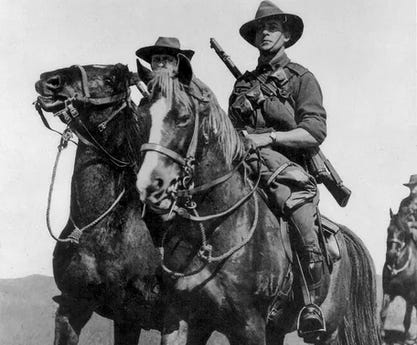
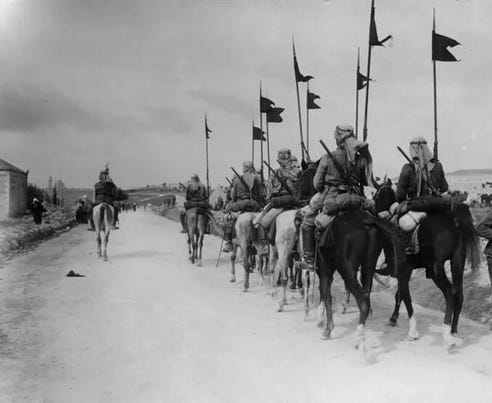
So, all of the major belligerents began the war with horses.
But, most soon realized that using horses in infantry assaults — a war practice thousands of years old — was no longer feasible in modern, mechanized warfare.
So, most horses, as well as donkeys and mules, were used in logistical support.
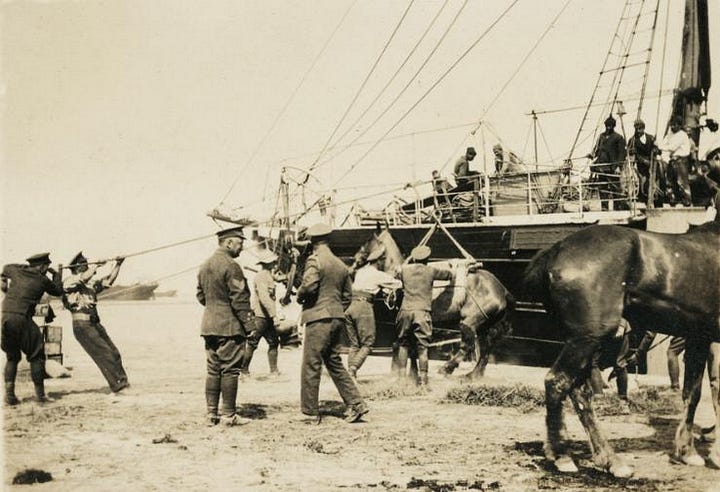
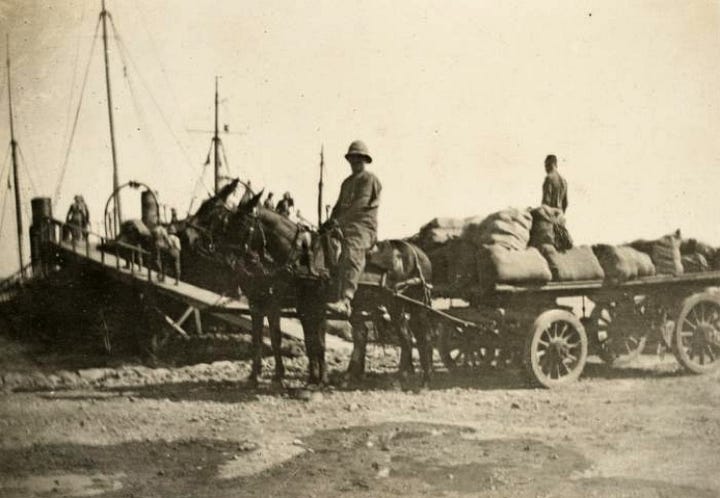
Horses could travel through mud better than mechanized vehicles and could advance through roadless areas, bringing supplies right up to the front lines.
But their high rate of loss made finding replacement stock a high priority.
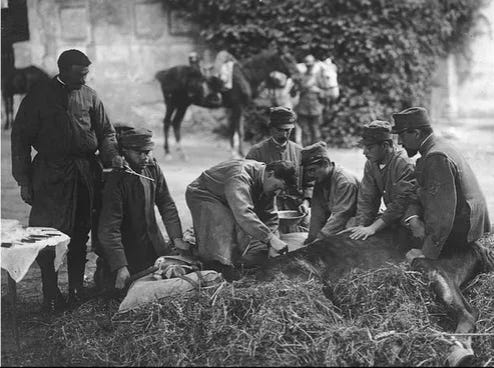
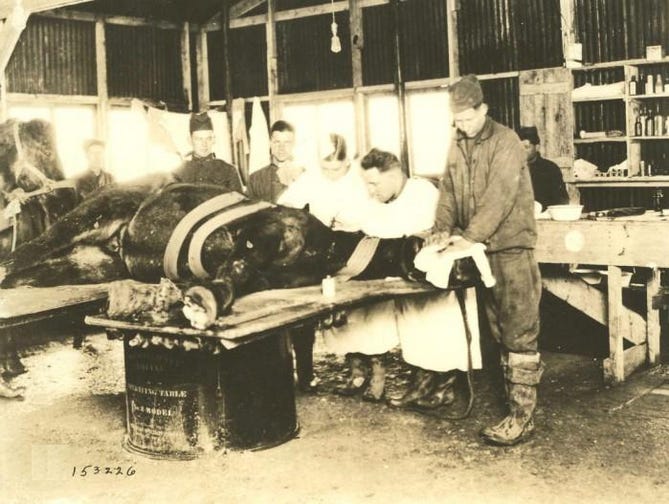
Lightly wounded horses were treated at veterinary hospitals and sent back to the front.
Seriously wounded animals were put down where they lay and buried in fields or in shell holes.
Both the British and French set up horse purchasing networks across the US to replenish their stocks.
And half a million American horses were sent to Europe during the war.
But Germany struggled.
The Allied blockade of German ports prevented their importing of horses, making it impossible for the German military to replace losses.
So, by the end of the war, the German stock of military horses was virtually gone.
What is inescapable when reading about war horses is the emotional support soldiers found in these animals.
Some wrote poems about their war horse.
Here are two stanzas of Lance-Corporal E.R. Henry’s poem “The Battery Horse.” 1
He whinnied low as I passed by,
It was a pleading sort of cry;
His rider, slain while going back,
Lay huddled on the muddy track.
And he, without a guiding hand,
Had strayed out on the boggy land;
And, held there by the treacherous mire,
Lay exposed to shrapnel fire…
Now you may ask: why in this strife,
When times were grim and death was rife,
I should have ventured from my course
To try and help a battery horse?
I’ll tell you why I felt his need . . .
I’ve owned and loved a chestnut steed.
Across all these nations, you will find memorials to war horses lost in the Great War.
*******************************
I’ll see you tomorrow.
— Brenda
“The Battery Horse,” by E.R. Henry. The Society of Classical Poets, https://classicalpoets.org/2018/11/16/the-battery-horse-by-e-r-henry/


